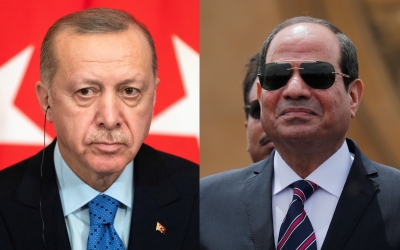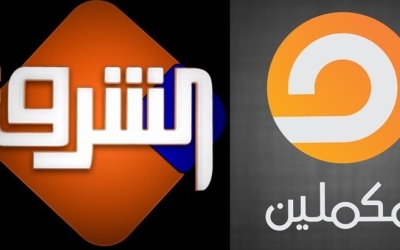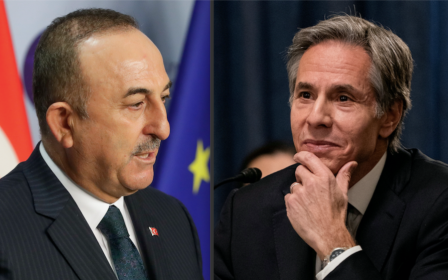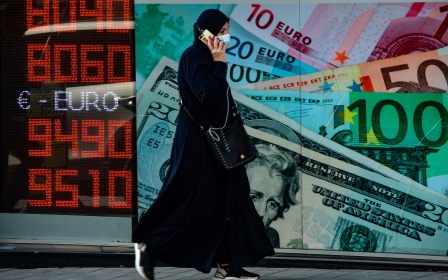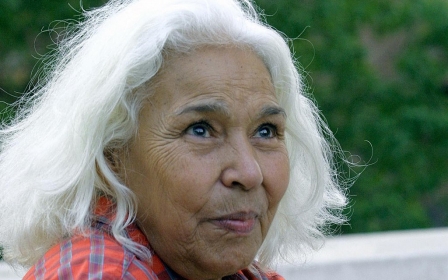Egypt's pro-Sisi media to temper criticism of Turkey amid warming ties
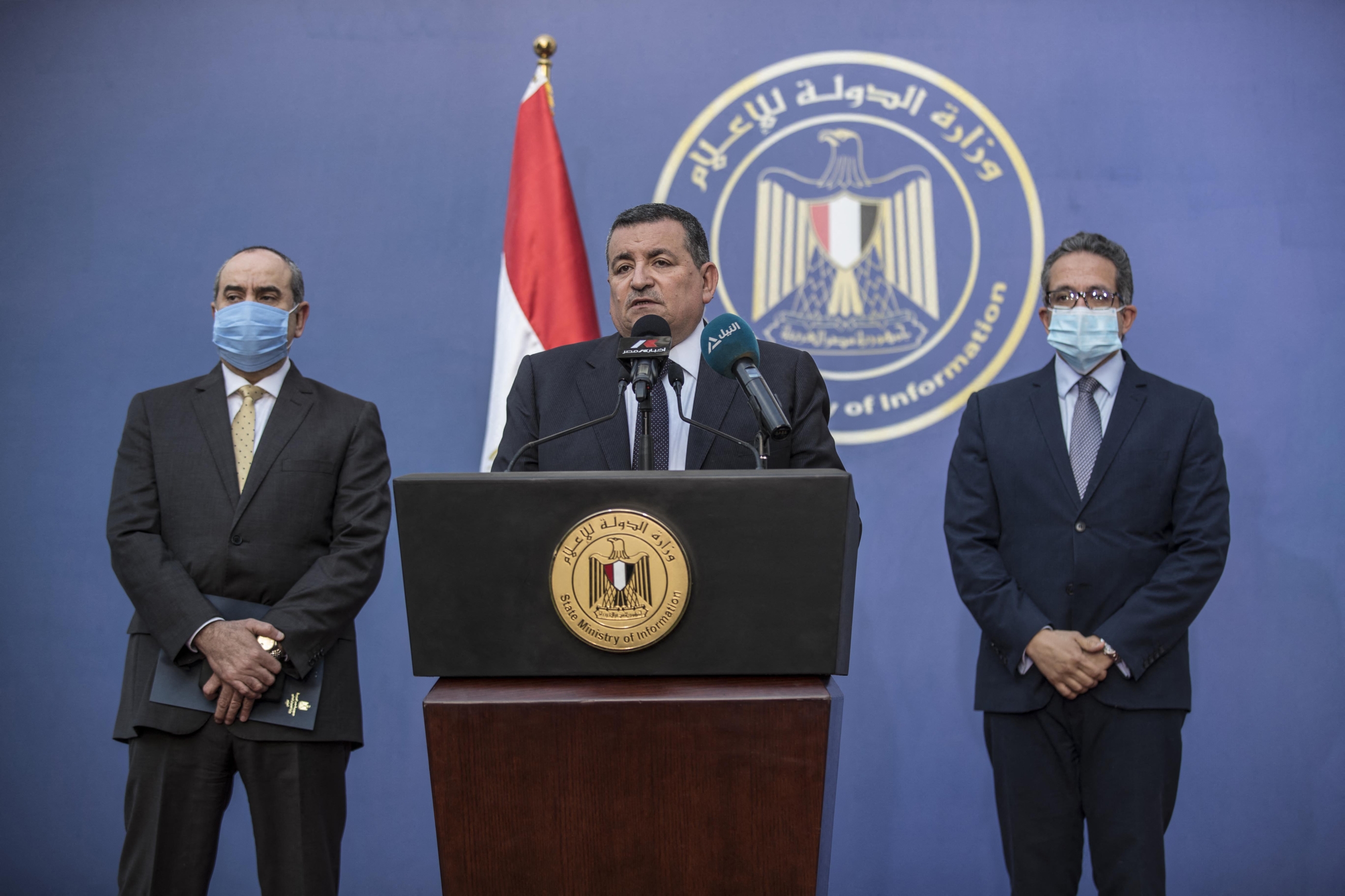
Cairo has welcomed recent Turkish demands that Istanbul-based Egyptian opposition TV channels tone down criticism of President Abdel Fattah el-Sisi, adding that Egypt-based media would also be expected to "adhere to calm."
In statements to BBC Arabic published on Friday, Egypt’s Minister of Information Osama Heikal said that Turkey’s move to temper criticism of Sisi "could create an encouraging atmosphere for dialogue between the two countries and settle bilateral problems that have been unresolved for years".
"It is expected that Egyptian media will adhere to the calm vis-a-vis Turkey in order to allow for an appropriate atmosphere for negotiations between the two countries to be created, if any,” Heikal added, in the first official Egyptian comment on the matter.
A senior Turkish government official, who was briefed about the issue, told MEE on Thursday - on condition of anonymity - that the heads of Mekameleen and Al-Sharq, two Egyptian satellite TV channels based in Istanbul, were “asked to soften their political criticisms against the Egyptian government and stop personally attacking Sisi”, amid a rapprochement between the two regional powers.
"There is no need for panic," added the official, who said that allegations that Turkey was going to close down the channels were false.
New MEE newsletter: Jerusalem Dispatch
Sign up to get the latest insights and analysis on Israel-Palestine, alongside Turkey Unpacked and other MEE newsletters
Ankara has been at loggerheads with Cairo since a 2013 military coup led by then-defence minister Sisi against his democratically elected predecessor, Mohamed Morsi.
Morsi was a leading member of the Muslim Brotherhood, Egypt's largest political movement, which has since been crushed by Sisi. He was backed by Turkish President Recep Tayyip Erdogan, who refused to acknowledge Sisi's legitimacy following the coup.
The two regional powers have sparred over several other issues in recent years, including the war in Libya - where they backed rival sides - and maritime disagreements.
Sisi's government has banned all political opposition and independent media, so many have fled into exile and launched channels abroad, mainly in Turkey, which has become a safe haven for members of the opposition and supporters of Morsi.
In recent weeks, however, statements from both sides have hinted at fresh efforts to mend relations.
Egyptian MP Mustafa Bakri, who is close to the government, told BBC Arabic that the Turkish move "will open the way for the restoration of relations between the two countries".
"But Ankara must take practical steps to stop incitement against Egypt and interfering in its affairs… Turkey must also pledge not to harbour terrorists on its territory,” Bakri added, in inflammatory language commonly used by the Egyptian government to describe political opposition.
Meanwhile, the online news outlet Al-Manassa reported on Sunday that Egyptian TV channels and newspapers had received a government request to "stop discussing Turkish affairs" three days after reports about Turkish requests.
"We received directives to stop talking about Turkey and Erdogan on 15 March, to avoid news of the Turkish opposition and lawmakers opposing Erdogan, and any news of the economic crisis there, for an indefinite period," a source at a state-run channel told the website.
Channels staying open
A senior source at Mekameleen TV told MEE last week that the Turkish government had formally requested the channel to "adjust its editorial line in accordance with journalistic professionalism", but confirmed that Turkey did not ask the channels to close down.
Meanwhile, the chairman of Al-Sharq, Ayman Nour, also a leading Egyptian opposition politician, said there was a degree of "exaggeration" in the reports about the Turkish requests.
"The Turkish-Egyptian rapprochement will certainly have its ramifications," he told Mekameleen in an interview.
"I do not expect that one of those ramifications is to shut down channels. Our brothers in Turkey may have a request for those channels to abide by codes of conduct.
"We respect the circumstances which Turkey is going through now, but that will not force us to give up on our mission or principles," Nour added.
Al-Sharq TV apologised on Thursday evening for broadcasting some of its political programmes, without saying why, according to the BBC.
The development comes amid heightened international condemnation of Egypt's human rights record under Sisi, with 31 countries decrying his government's use of "terrorism" accusations against its political opposition.
In response to a UN Human Rights Council statement signed in early March, Egyptian Foreign Minister Sameh Shoukry blamed "a strong media machine" run by "terrorist organisations" seeking to denigrate Egypt abroad, in reference to the Turkey-based opposition channels.
The comment was perceived by opposition journalist Gamal Sultan as the "first official confession that opposition media has triumphed over state media".
Middle East Eye delivers independent and unrivalled coverage and analysis of the Middle East, North Africa and beyond. To learn more about republishing this content and the associated fees, please fill out this form. More about MEE can be found here.


